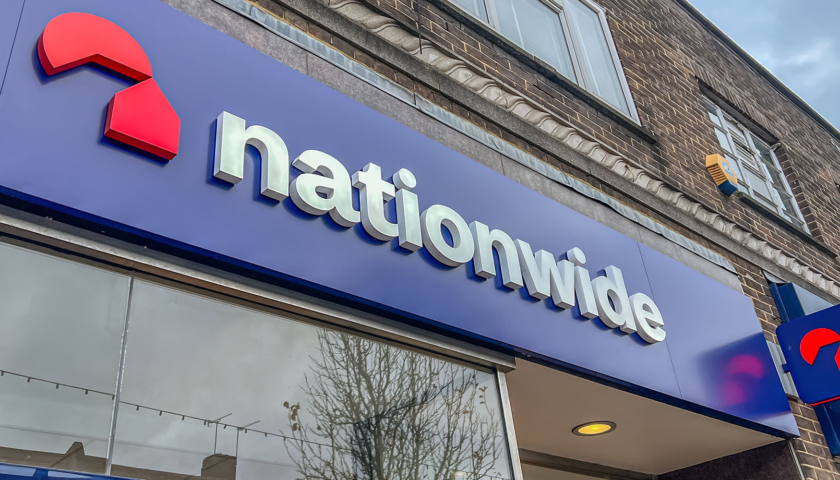With mortgage rates falling and affordability pressures easing, now could be a good time to buy a house and this month is expected to be the busiest for movers.
Although mortgage rates remain significantly higher than their long-term average, some sub-4% deals have returned to the market as interest rates continue to fall, resulting in lower borrowing costs for prospective buyers. Further rate cuts this year should loosen affordability constraints further.
The Bank of England voted to reduce the base rate from 4.5% to 4.25% on 8 May, the lowest rate since May 2023 and analysts expect more cuts could be on the way to combat rising inflation amid high unemployment and uncertainty over Trump’s tariffs.
Amanda Bryden, head of mortgages at Halifax, comments: “Mortgage rates have continued to fall, with most lenders now offering rates below 4%. Coupled with positive earnings growth that has outpaced broader inflation, these factors have helped to steadily improve affordability for many buyers.”
However, while mortgages may be getting cheaper, property buyers now have to stomach higher stamp duty bills. Stamp duty thresholds dropped on 1 April, potentially adding thousands to the cost of moving house.
The latest house price data from Halifax shows average house prices stagnated in June, following a drop of 0.3% in May as buyers adjusted to higher property taxes.
Bryden remains positive though, adding: “The market’s resilience continues to stand out and, after a brief slowdown following the spring stamp duty changes, mortgage approvals and property transactions have both picked up, with more buyers returning to the market. That’s being helped by a few key factors: wages are still rising, which is easing some of the pressure on affordability, and interest rates have stabilised in recent months, giving people more confidence to plan ahead.”
According to Sarah Coles, head of personal finance at Hargreaves Lansdown, now might be a good time to buy a house as “there could be an opportunity to drive a hard bargain during a slight lull in demand”.
She tells MoneyWeek: “The stamp duty holiday will have encouraged buyers to snap up a property before the end of March. It means sellers right now will be keen for any kind of offer, so this could be a great opportunity.”
If you are due to complete on a purchase this month, there could be a lot of competition for removals.
Data from conveyancing and removals comparison website reallymoving suggests 29 August will be the busiest day of the year for home movers.
Figures from the comparison website, based on 700,000 removal quotes, suggest there will be 22,386 home moves on 29 August.
January and February are the least popular months to move and more than a quarter of households move on a Friday, according to the research.
Only 5% choose to move on a Sunday.
Rob Houghton, chief executive of reallymoving, said: “Moving on the busiest day of the year means there will be more competition for removal services, so make sure you’re well prepared and that everyone in the chain knows you’re aiming for that date. Ask the removals company to visit your home to assess how much you need to move, or as a minimum do a detailed video survey over WhatsApp or FaceTime to make sure you get the right size van and team on the day.”
What’s happening with mortgage rates?
Mortgage rates have been falling over the past few months, partly due to President Trump’s tariffs that have fuelled speculation of more interest rate cuts this year.
The average rate on both a two-year and five year fixed mortgage today is 5.02%, according to Moneyfacts.
“Falling interest rates, and the fact the market is expecting two or three more cuts by the end of the year, mean mortgage rates are looking increasingly attractive,” says Coles.
“The fact there are more cuts expected later this year will mean there’s scope for them to move even lower.”
The number of low-deposit mortgage products available is also at its highest in 17 years, according to Moneyfacts, which should help first-time buyers get onto the property ladder.
Is now the right time to buy for you?
As well as raiding your savings for a deposit or relying on family for help, prospective buyers will need to weigh up whether they can afford monthly repayments – particularly in light of rising costs elsewhere.
While the worst of inflation is behind us, a slew of bill hikes came into effect in April, impacting energy bills, water bills, council tax and more.
This, coupled with Trump tariffs and geopolitical tensions pushed inflation up to 3.6% in June.
According to Coles, the big unknown when it comes to buying a home is your own financial position. “The huge amount of uncertainty in the wider economy could mean some jobs become less secure. Nobody is forecasting major job losses at this stage, but it’s worth thinking about how you might be affected by a global slowdown, and whether you feel your position is robust enough to make a financial commitment like this,” she explains.
Building a robust property deposit, and keeping emergency savings on hand, should help shelter you from more unsettling forces in the wider world, says Coles.
Aim to have three to six months’ worth of essential expenses in a competitive easy-access savings account, which can help protect you from unexpected expenses.
It’s worth doing the maths to understand what your monthly outgoings are likely to look like once you have completed a property purchase. Factor in any potential bill hikes, and plan for how you would manage if you were to experience a shock event like redundancy.
If you have accounted for these costs, you have the money and you are ready to go, then there is no need to hold back.
But if you are unsure and feel that buying now would stretch your monthly income to the max and leave you with limited emergency savings, it is probably better to wait. You might want to build up a larger deposit, negotiate a pay rise, or wait until mortgage rates are lower.
Five vital questions for property viewings
If you’ve decided to go ahead with buying a house or flat, it’s important to take your time during property viewings and ask lots of questions.
According to St. Modwen Homes’ property expert Alison Maclean, there are five overlooked questions that could save house-hunters a small fortune. She reveals the smart questions to ask that could protect your bank balance (and your sanity):
- What’s lurking in the loft? Rodent droppings, old asbestos insulation, and dodgy DIY wiring can all be hiding in plain sight. So, during your visit, ask when the loft was last inspected and whether it’s been properly insulated – and don’t be afraid to request access during your second viewing.
- How old is the boiler – and when was it last serviced? Boilers typically last 10–15 years, and a full replacement can cost thousands of pounds. So, if the boiler is towards the end of its lifetime, it’s worth negotiating on price – or asking for it to be replaced before completion.
Read more: ‘I replaced a gas boiler with a heat pump – here are five things I’ve learnt’ - What’s the parking situation really like? A designated space on the listing doesn’t always guarantee stress-free parking. Ask neighbours or check during peak hours to see how crowded the street gets – especially if the property is near a school or high street.
- What is the EPC? The Energy Performance Certificate rates a property’s energy efficiency on a scale from A (most efficient) to G (least efficient) and gives an indication of how much it will cost to heat and power the home. Energy bills are rising, so taking a look at the EPC can provide insight into the potential running costs of the home.
- What’s the broadband speed and mobile signal like? Hybrid working is here to stay, and digital connectivity is more important than ever – yet it’s one of the most commonly overlooked details when buying a property. Check speeds using broadband checker tools, and ask the current owner about blackspots or dropped calls.
Contact one of our highly experienced mortgage advisors today on 0121 500 6316 to discuss your mortgage needs.



